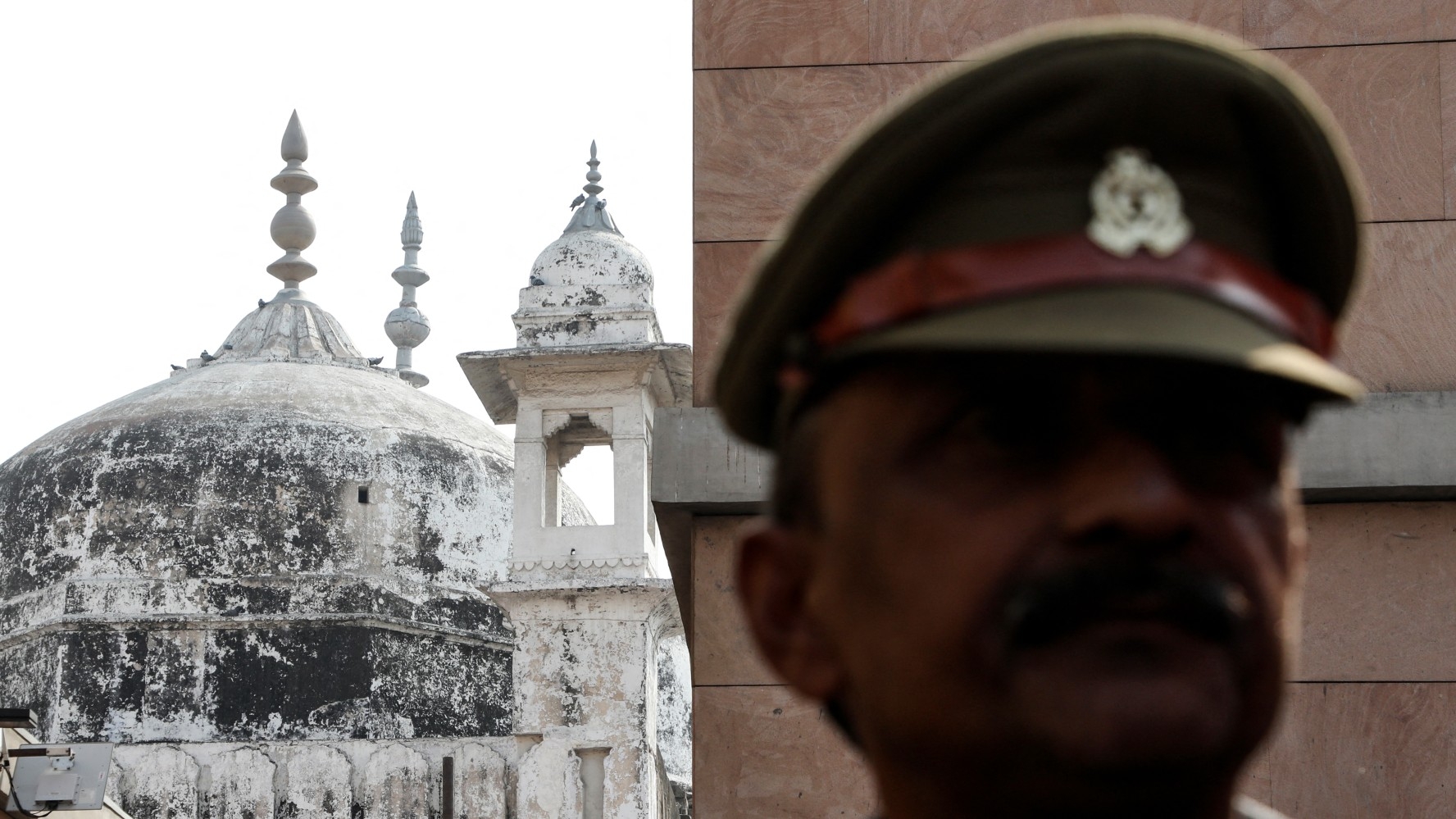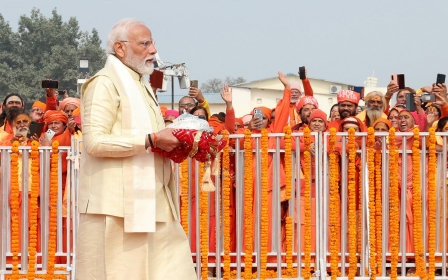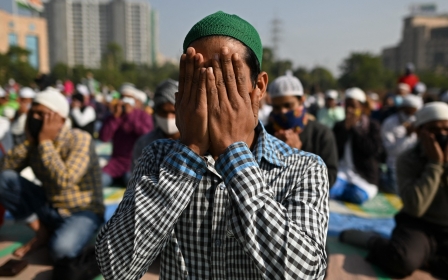How India's demolition drive is alienating its Muslim population

After the controversial inauguration last month of a Hindu temple at a site in Ayodhya in the Indian state of Uttar Pradesh, where a historic mosque once stood, India’s far-right government has moved to raze other Islamic heritage sites, reigniting long-simmering tensions over sacred Muslim landmarks.
Under the guise of reclaiming state land or clearing alleged encroachments, Indian authorities have mobilised bulldozers to dismantle mosques and other places of Islamic reverence.
Tensions flared up earlier this month in the northern Uttarakhand state, where violent clashes left at least six people dead and many more injured after the demolition of a madrassa and mosque in Haldwani. To enforce calm, the local administration imposed an indefinite curfew, shut down internet services and ordered police to shoot violators.
With police arresting dozens of people from their minority community since the clashes, hundreds of Muslim families have fled the area, fearing state reprisals.
The demolitions in Haldwani appear to be part of a broader strategy pursued by the Bharatiya Janata Party (BJP)-led Uttarakhand government to dismantle Islamic structures across the state. Last year, the state government, in what was labelled a “mega clean-up” operation, razed more than 330 mausoleums.
New MEE newsletter: Jerusalem Dispatch
Sign up to get the latest insights and analysis on Israel-Palestine, alongside Turkey Unpacked and other MEE newsletters
The campaign - endorsed by the BJP’s ideological mentor, the Rashtriya Swayamsevak Sangh (RSS) organisation - was described by the state’s chief minister as a pivotal crusade against “land jihad”, a phrase used by Hindutva proponents to refer to Muslim construction in Hindu-majority areas.
In January 2023, massive protests erupted in Haldwani after authorities ordered the demolition of around 4,000 Muslim homes that allegedly encroached on railway land. The demolition was stayed by the Supreme Court of India, which ruled that 50,000 people “cannot be uprooted overnight”.
'We are not afraid'
Such incidents have not been limited to Haldwani. A centuries-old mosque was knocked down in the capital New Delhi late last month, with city authorities saying it had been illegally constructed in a forest reserve, despite the structure predating modern Delhi. City authorities reportedly dismantled the mosque in the dead of night without warning, in defiance of their responsibility to notify the Delhi Waqf Board.
The urban planning agency also razed the grave of Baba Haji Rozbih, believed to be one of the first Sufi saints in Delhi. The 12th-century grave was located in Sanjay Van, a dense forested area where 20 other religious structures, including 16 Muslim shrines, are slated for demolition.
In India’s financial capital, Mumbai, authorities recently tore down several makeshift shopfronts of Muslim-owned businesses, days after small religious clashes erupted over the controversial Ayodhya temple inauguration.
Historians have questioned official claims of encroachment, asking how centuries-old shrines could fall into this category. Amnesty International has accused Indian authorities of using demolition drives as an excuse to target Muslims, noting that this “cruel and appalling” policy is “deeply unjust, unlawful and discriminatory”.
Hindu nationalists have also targeted other major Muslim landmarks, including the Taj Mahal, claiming them as sacred Hindu sites
Conflicts over the ownership of mosque or temple sites have long played a pivotal role in the Hindu supremacist agenda in India. Groups such as RSS and Vishva Hindu Parishad, linked to Prime Minister Narendra Modi’s BJP, have asserted claims over Muslim monuments and religious buildings, advocating for their “reclamation” and replacement with Hindu temples.
Mirroring their decades-long campaign in Ayodhya, Hindu nationalists have also targeted other major Muslim landmarks, including the Taj Mahal, claiming them as sacred Hindu sites.
At particular risk today is the centuries-old Gyanvapi mosque in Varanasi, one of India’s oldest inhabited cities, with tensions high after a court recently ruled that Hindu worshippers could pray inside the mosque premises. Critics say this contravenes a 1991 law that bars the conversion of places of worship. In addition, surrounding buildings have been demolished by official order, stoking fears that the mosque itself is now vulnerable.
After the chief minister of Uttar Pradesh recently suggested that Muslims should give up their claims to the Gyanvapi mosque and another contested site, the Shahi Eidgah mosque in Mathura, Muslim religious leader Tauqeer Raza Khan issued a protest call: “If the government wants violence, we are ready,” he said.
“We are not afraid of the police or bullets. The government is running bulldozer [on madrassas]. Supreme Court should take notice, but it is working under the government’s pressure.”
The views expressed in this article belong to the author and do not necessarily reflect the editorial policy of Middle East Eye.
Middle East Eye delivers independent and unrivalled coverage and analysis of the Middle East, North Africa and beyond. To learn more about republishing this content and the associated fees, please fill out this form. More about MEE can be found here.





